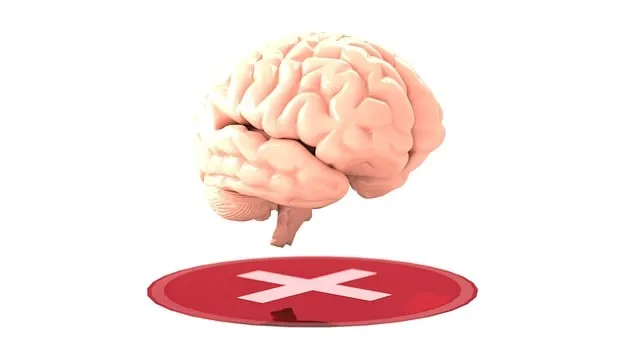Kaiser Healthcare in Wheat Ridge prioritizes patient safety and mental well-being through comprehensive risk assessment and tailored harm minimization strategies. Their approach emphasizes proactive prevention, early intervention, and holistic care, integrating trauma support services and cultural sensitivity. By addressing environmental factors and individual needs, Kaiser equips patients with tools for emotional resilience. Wheat Ridge residents have access to diverse mental health services, workshops, and community resources, fostering a culture of mental health awareness. This holistic framework ensures personalized care that caters to physical and psychological well-being, empowering individuals to navigate challenges with greater resilience. For those seeking help in Wheat Ridge, Kaiser provides a comprehensive gateway to understanding and managing mental health risks effectively.
Risk assessment and harm minimization planning are essential components of mental health safety, helping individuals navigate challenging situations. This article explores crucial strategies to enhance your understanding and resilience. We delve into ‘Understanding Risk Assessment’ as a foundational step for mental well-being. The Kaiser Approach offers a comprehensive guide to Harm Minimization Planning. Additionally, we spotlight Wheat Ridge as a resource for accessing mental health services, providing support when needed. Learn how to identify risks in daily life and create personalized harm minimization strategies for enhanced resilience.
- Understanding Risk Assessment: A Foundation for Mental Health Safety
- The Kaiser Approach to Harm Minimization Planning
- Wheat Ridge: Accessing Mental Health Services and Support
- Identifying and Mitigating Risks in Daily Life
- Creating a Personalized Harm Minimization Strategy
Understanding Risk Assessment: A Foundation for Mental Health Safety

Risk assessment is a crucial step in ensuring mental health safety and fostering self-care practices among individuals seeking support at Kaiser or other healthcare facilities, even in Wheat Ridge. It involves meticulously evaluating potential hazards and their likelihood to cause harm, enabling professionals to implement effective harm minimization strategies. By understanding the unique challenges each individual faces, whether related to trauma, stress, or other mental health concerns, healthcare providers can develop tailored plans that promote emotional healing processes.
This proactive approach goes beyond simply providing treatment; it empowers individuals with tools and knowledge for emotional well-being promotion techniques they can integrate into their daily lives. By prioritizing risk assessment and adopting evidence-based harm minimization strategies, Kaiser and similar institutions in Wheat Ridge contribute to creating a supportive environment that encourages resilience and fosters the long-term mental health of their patients.
The Kaiser Approach to Harm Minimization Planning

The Kaiser Approach to Harm Minimization Planning emphasizes a proactive and holistic strategy for ensuring mental health and well-being in Wheat Ridge communities. This approach, pioneered by Kaiser Permanente, focuses on prevention and early intervention to mitigate risks before they escalate. By integrating Trauma Support Services within their framework, Kaiser aims to build resilience among individuals and families, addressing not just symptoms but the underlying causes of distress.
This method involves a comprehensive assessment of environmental and social factors contributing to harm, along with the development of tailored plans for at-risk populations. Mental wellness is prioritized through accessible programs that foster emotional resilience building, ensuring that folks in Wheat Ridge have the tools they need to navigate life’s challenges effectively.
Wheat Ridge: Accessing Mental Health Services and Support

In Wheat Ridge, accessing mental health services and support is made available through various channels, including Kaiser and other community resources. Individuals seeking help can navigate a network of professionals dedicated to promoting Mental Health Awareness and applying Mind Over Matter principles in their practice. The process is designed with Cultural Sensitivity in Mental Healthcare Practice at its core, ensuring that every resident receives care tailored to their unique needs and background.
Wheat Ridge residents have the option to consult with mental health specialists within Kaiser, who are equipped to handle a broad spectrum of issues. Additionally, local community centers and non-profit organizations offer programs and workshops aimed at fostering Mental Health Awareness and providing additional support systems. These initiatives collectively work towards minimizing harm and promoting positive mental well-being throughout the community.
Identifying and Mitigating Risks in Daily Life

In daily life, identifying and mitigating risks is a crucial step toward harm minimization. This process involves assessing potential hazards in various aspects of our lives, from personal safety to mental health. In Wheat Ridge, accessing mental health help through Kaiser Healthcare Provider offers a robust framework for risk assessment and management. They provide services tailored to individual needs, focusing on both physical and psychological well-being.
For instance, cultural competency training and emotional intelligence workshops, often included in mental health plans, can equip individuals with the social skills necessary to navigate challenging situations. By fostering understanding and empathy, these programs promote healthier interactions and help individuals develop strategies to manage stress and risk factors effectively.
Creating a Personalized Harm Minimization Strategy

Creating a Personalized Harm Minimization Strategy involves understanding your unique needs and resources, much like navigating a personalized mental health journey through Wheat Ridge or seeking help from Kaiser. It’s a process that begins with self-reflection and assessment, considering factors such as triggers, coping mechanisms, support systems, and personal goals. A comprehensive approach to harm minimization incorporates strategies for stress management and mood regulation, drawing insights from evidence-based practices and even creative outlets like art therapy.
This strategy isn’t one-size-fits-all; it should be tailored to address specific challenges and promote emotional healing processes. Mental Health Policy Analysis and Advocacy plays a crucial role by highlighting resources available in the community, ensuring accessibility to services that support both Mood Management and overall well-being. By incorporating these elements into your personal plan, you can empower yourself to navigate difficult situations with greater resilience and peace of mind.
Risk assessment and harm minimization planning are essential components of mental health safety. By understanding these concepts, as outlined in this article through case studies like Wheat Ridge and approaches like the Kaiser method, individuals can take proactive steps to identify and mitigate risks in their daily lives. If you’re seeking mental health services, consider reaching out to resources in your area, such as those available from Kaiser or local support networks in places like Wheat Ridge. These strategies empower individuals to create personalized harm minimization plans, enhancing overall well-being.






